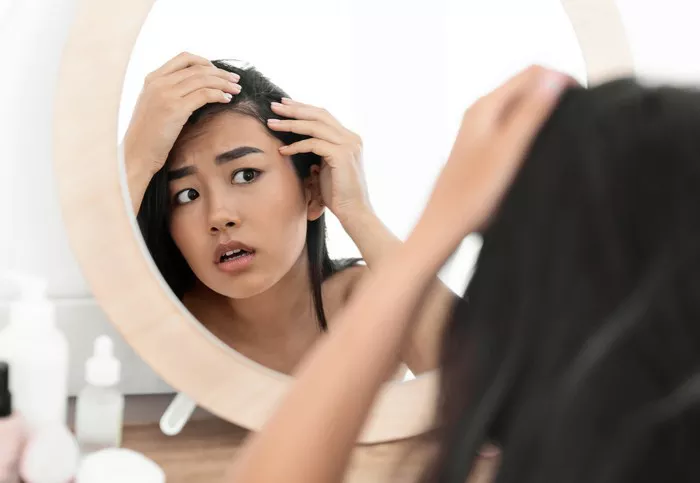Hair loss can be a deeply emotional experience, not just for men, but for many women as well. Factors such as stress, hormones, menopause, and lifestyle can all contribute to thinning or shedding hair. While hair loss is often seen as a cosmetic concern, it can have profound mental health implications, sometimes leading to feelings of distress, anxiety, or even depression.
Claire Fullam, a Clinical Trichologist at trua.ie, sheds light on the topic of hair loss during her appearance on Today with Claire Byrne. She explains that hair loss can have serious psychological impacts, noting that some individuals have even suffered life-changing consequences, such as job loss, relationship breakdowns, or even suicidal thoughts due to the emotional toll of hair loss.
However, Fullam reassures us that “there’s a lot that can be done” when it comes to addressing hair loss, depending on its cause. Conditions like scarring alopecias may prevent hair regrowth, while others can allow for full recovery. Fullam herself lost “90 percent” of her hair in five weeks due to alopecia areata, but nine years later, she has regained a full head of hair.
How Much Hair Loss is Normal?
According to Fullam, it’s perfectly normal to shed some hair daily. On average, most people lose between 50 and 100 hairs per day. The amount of hair shed depends on factors like hair density and color. For example, individuals with denser hair (such as red or curly hair) may have around 80,000 follicles on their scalp, while people with blonde hair have around 150,000. In these cases, it’s typical to lose about 100 hairs per day.
“You can’t grow hair without losing hair,” Fullam explains, emphasizing that hair loss is part of the natural growth cycle.
However, if you notice an increase in hair loss over the course of a few weeks, it may be time to consult a healthcare provider or trichologist to determine the cause and seek appropriate treatment.
Scalp Health: The Key to Healthy Hair
When it comes to maintaining healthy hair, Fullam stresses the importance of scalp health. “You can’t have healthy, gorgeous hair without scalp health,” she says. To improve scalp health, she recommends exfoliating your scalp once a week with a chemical exfoliant such as glycolic, lactic, or salicylic acid. These acids penetrate the scalp to help clean out follicles, removing buildup that could impede healthy hair growth.
She advises starting slowly with exfoliation to avoid irritation, gradually increasing the time the product is left on the scalp. “Scalp care is like skincare, and hair care is like makeup,” Fullam adds, suggesting that investing in products for scalp health can have a greater impact on overall hair health than focusing solely on haircare products.
Conclusion
Hair loss is a complex issue with a range of causes, but it’s normal to shed a small number of hairs each day. If you notice a significant change in the amount of hair you’re losing, it’s a good idea to consult with a specialist. By focusing on scalp health and using targeted treatments, many people can slow or reverse hair thinning and enjoy healthier, stronger hair.
Related topics:
- Julia Fox Debuts Dramatic Bixie Cut at Movie Premiere
- Hair Spa: Why Your Hair Deserves Some Pampering
- Princess Kate’s Curly Hair: A Temporary Change After Cancer Treatment


